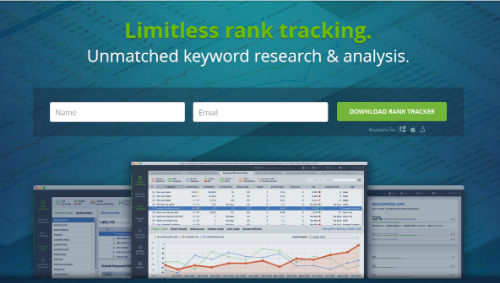SEO never stops evolving. Algorithms change, technology advances, and old habits give way to new trends. Yet many of the basics remain as relevant today as they were five years ago. Want to succeed in 2018? You’ll need to master traditional approaches while addressing emerging realities, from the rise of mobile to the arrival of voice search.
With that in mind, here are some key tips for improving your Google rankings, based partially on the latest SEMrush SEO study, and partly on our own analysis of marketing trends.
7 Fundamental Search Engine Optimization Tips
- Create Quality Content
- Write More In-Depth Content
- Secure More Backlinks
- Improve Your Site Security
- Add Schema
- Focus on Local SEO
- Analyze SERP features
Engaging and Informative Content 
When it comes to content, context is valuable, longer is preferable, and quality is non-negotiable. Add relevancy to this mix, and you have a recipe for SEO success that’s as timeless as it is solid. Want to know why content takes pride of place in any digital marketing strategy?
According to SEMrush, pages with more content rank higher for popular keywords – 1.5 times higher. Across the board, high-ranking pages had at least one thing in common: they offer visitors more contextual content to read, more data to see, and more information to ponder.
And that doesn’t factor in quality – the single most important variable. Generic or poorly written content drives people away. This can send your bounce rate skyrocketing, which can devastate your search rankings. The takeaway? No matter how algorithms change, nothing beats content as the driver of organic search traffic.
Show Your Expertise by Going In-Depth
Google tends to prioritize sites that feature more contextual and in-depth content. According to its algorithms, thoroughness equals authoritativeness. Not only that, but visitors spend more time browsing through content if it dives deep into meaty topics that interest and inform them.
The length of your keywords matters as well. SEMrush contends that long-tail keywords go better with long-form content and short keywords pair well with short blurbs. Why? More often than not, when users search with long queries, they’re looking for detailed information. When they plug in just a few words, they want a brief summary of the topic.
Gain Backlinks from Reputable Sites
Backlinks (links to your site from other sites) are key to any search engine optimization strategy.
SEMrush’s study reveals that high-ranking sites have, on average, three times more backlinks than their less fortunate competitors.
There’s no magic bullet for securing links from quality sites, but there are proven strategies – guest blogging, for example. It’s still one of the most successful tactics, not because the articles themselves garner tons of links, but because it’s the best way to expand your online presence, boost your reputation, increase your social media followers and build new relationships.
Of course, it takes a lot of hard word work and a little luck to get an explosion of quality backlinks. So how do you know if it’s worth it? There are plenty of tools out there that can help you track and analyze the quantity and quality of your backlinks. Some of the most well-known include:
Boost Your Security Architecture
How many businesses think of cybersecurity when they think of SEO? Yet, according to SEMrush, it plays a role in determining your page rank – a bigger role than most marketers realize.
For years, Google has made security a top priority. It wants the internet to be a safer place. As a result, it rewards sites that enhance their security architecture by switching to HTTPS, a more secure form of HTTP.
Most sites that see a large volume of traffic have this practice locked down, but businesses in less competitive niches often lag behind when it comes to adopting the latest security measures. This is where obtaining your SSL certificate can set your website apart. Upgrading can be expensive (it often requires outside help), but it is one way forward-thinking organizations can outpace the competition.
Provide More Info with Schema
The more information you give those searching on Google, the more likely they’ll be to click on your page. The better your click-through rate, the higher you’ll rise in the search rankings. Schema.org can help you do just that.
Schema is a markup code that you can put on your website to give people more information about your business. When someone sees your listing on Google’s search results page, they’ll also see things like online reviews, addresses, business hours, prices, etc.
By providing extra metadata, you’re giving both search engine robots and real people more to work with when making decisions. When it comes to SEO, that’s a huge bonus.
Think Local
Local website optimization lets you hone in on your target audience and distinguish yourself from the competition. Improving your local rankings will be even more crucial in the coming years. The reason?
These days, people ask their mobile devices questions while they’re on the go. Increasingly, they’re using voice search to get their answers. And guess what? The majority of mobile and voice search is for local businesses. Skip local optimization, and you’ll lose business.
With that in mind, here are some things you can do to improve your local search ranking:
- Create a listing on Google’s My Business platform.
- Include local keywords and key phrases such as “emergency roof repair near Seattle, WA” and all related variations.
- Include location tags on images to optimize them for search.
- Create a killer mobile site to help people find you while they’re on the road or walking around.
There are plenty of other local website optimization techniques out there, but these should get you started.
Analyze Your SERP Features
Gone are the days when Google’s search engine results page (SERP) listed only ten bare-bones, blue links. Now when you search, you get a potpourri of local listings, news stories, Twitter feeds, and information blurbs – also known as SERP features.
What does it mean for marketers? Getting to the top of the page is no longer limited to traditional organic search. You also need to think of the other bells and whistles that Google offers. So what can you do about it?
In order to analyze your SERP features, you’ll need a powerful tool like SEO Powersuite’s Rank Tracker, which lets you track 15 Google SERP features, along with your keywords and organic results. With the right data, you can refine your strategy and prepare for the future of search.
Set the Stage for SEO Success in 2018
It’s not easy to maintain your position at the top of the SERPs. It’s can be even harder to start from scratch. That being said, it’s effort well spent. Keeping up with the competition and changing algorithms, takes time, research, and a lot of tweaking.
In most cases, it requires the help of a digital marketing agency, which has the resources to stay abreast of constantly evolving SEO practices. And whether you get help or go it alone, these are some tried-and-true strategies you can adopt to put you on top for 2018 and beyond.
The primary source of information for this post is a combination of the Ranking Factors SEMrush Study 2.0 and National Positions’ own internal research. If you’d like to review the full SEMrush Study, click here.
